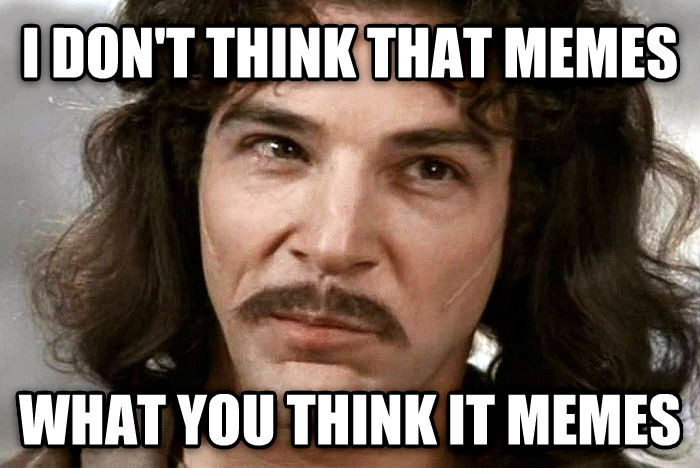When we think of the word “MEME” we think of funny reactions images/videos/text of someone or something with hilarious captions that circulate through social media creating a trend. According to the Wikipedia definition: “A meme (/ˈmiːm/ meem)is an idea, behavior, or style that spreads from person to person within a culture” So what exactly is a meme? How did it all start? In fact, did you know that the word “meme” is actually older than the internet?

Well…… technically yeah. The birth of the internet was in the 1980s (January 1, 1983, to be precise) while the word meme was found in the 1970s. The term “meme” was first coined by the British biologist/ethologist named Richard Dawkins in 1976 in his book called “The Selfish Gene” mused about how ideas influence human evolutions.

In this book, Dawkins took the greek word mimeme meaning ‘something which is imitated’ and shortened it to “meme”, a monosyllable that can rhyme with “gene”; as an attempt of expressing the way cultural information spreads within a cultural environment. Therefore, he used the term meme as a cultural equivalent of a gene. He even used a virus as an analogy to describe and define the word meme. To him, memes are a product of culture.
Here is an extract from the book The Selfish Gene:

oops…not this one…. the extract is below.
“The new soup is the soup of human culture. We need a name for the new replicator, a noun that conveys the idea of a unit of cultural transmission, or a unit of imitation. ‘Mimeme’ comes from a suitable Greek root, but I want a monosyllable that sounds a bit like ‘gene’. I hope my classicist friends will forgive me if I abbreviate ‘mimeme’ to meme. If it is any consolation, it could alternatively be thought of as being related to ‘memory’, or to the French word meme. It should be pronounced to rhyme with ‘cream’.”
What does it all meme?…..

In simple words, we all know “genes” are replicators that carry information about our traits as hereditary. Dawkins wanted to get away from people thinking about genes all the time. So he brings in the idea of a second replicator. Now if we look around, we carry various cultures along with us which is a form of information that we copy from person to person by imitation, by language, by talking, by telling stories, by doing things, so on and so forth. This is information copied with a varied selection, this is a design process going on similar to genes. He wanted a name for this new replicator and ended up with the name “meme”.

Later on, people started incorporating images into internet memes. Remember the Dancing Baby, that 3D rendering of a baby boogieing to a Swedish rock song? That’s one of the first image-based internet memes, which spread primarily through email chains and it came out in the year 1996.

Now back to our main question ‘Are memes art?’. If we look at the definition of art: Art is an application of human creativity that expresses one’s imaginations and ideas visually or orally. Well now if we compare it with meme we see that memes do the same exact thing that art has been doing for ages: bringing bright colorful images that expresses an idea and makes people think. All definitions of art point towards the direction of human creativity. Art is about showing people how you see the world and so are memes. So why shouldn’t memes be considered art? Memes are universally relatable and trigger human emotions on various levels. They connect people, invoke emotions, make people laugh. To be more specific it can fall under the category of Pop art culture which means using popular media styles to create art and simple comedy.

Finally, I just want to share the meme I created about CT101.





This was a very interesting and informative post thank you I didn’t even know memes were around that long and you definitely hit a throwback memory post with that baby post. It reminds me of AIM/AOL days lol
Ikr!!! Glad you like it.Thanks for leaving a comment. :)))
This post is Epic! Please present it in class! (pretty please!)
Really love the historical references and contexts, we really get an engaging rapport to connect with here!
Thanks so much for the great work on this!
Thank you so much, professor!!! I am really happy that you like it:))) I will surely present it. I am on Tuesday sessions so yeah.
Awesome! Thanks so much! 🙂